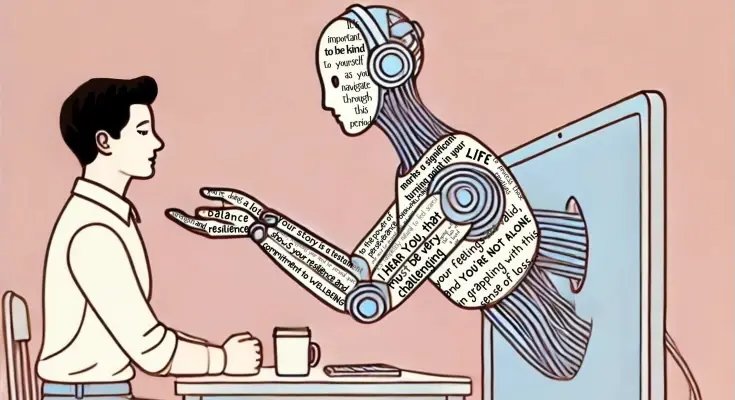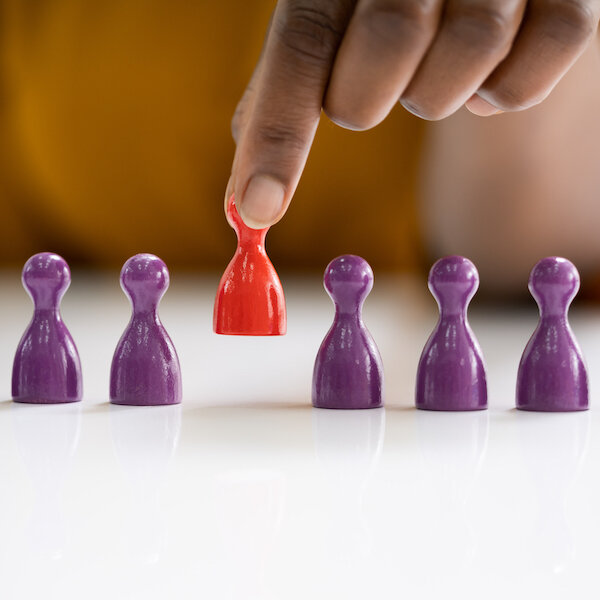The Work and Play Lab explores the science of mental effort and leisure
The Work and Play Lab is serious about mental and physical effort, but also about leisure and rest. The lab is primarily focused on understanding the nature of effort, how people push themselves to reach their goals, and increasingly, why effort itself feels meaningful. This has led to an emphasis on the psychology of self-control and the related concepts of cognitive control, with a particular focus on understanding why individual differences in self-control are so powerfully predictive of important life outcomes. Recent work in the lab explores the motivational and meaningful aspects of self-regulation, investigating what drives some people to consistently exert effort toward their goals while others struggle. The lab has also examined an unappreciated aspect of empathy: that empathy requires effort, and as such is often avoided, while exploring how artificial intelligence may actually outperform humans in expressing compassion.
Inspired by the philosopher Josef Pieper who said that work is the means of life; leisure the end, the lab has expanded its focus on how people spend their free time and the consequences of these choices. Current work examines the psychology of digital media use, particularly how rapid switching between content on platforms like YouTube and TikTok paradoxically increases boredom and decreases engagement and satisfaction, contributing to a broader pattern of people becoming increasingly bored in our digital age. The lab has also investigated recreational cannabis use in everyday life, examining its emotional, motivational, and self-regulatory effects. A major new direction explores "effortful leisure"—discovering that people find effort inherently meaningful and that activities requiring more effort paradoxically become more satisfying and purposeful.
In the past, the lab also conducted research on prejudice and discrimination, especially at they impact academic performance. Also noteworthy is the lab’s commitment to open and transparent science, which among other things includes regularly running replication studies.
What follows are questions that have guided the lab’s research and representative publications that address these questions.
Self-Control
Why is self-control so hard? Is self-control a limited resource? Does self-control help people reach their goals? What strategies do people use to control themselves? Is ego depletion real?

Inzlicht, M., & Roberts, B.W. (2024). The fable of state self-control. Current Opinion in Psychology, 58, 101848.
Inzlicht, M., Werner, K.M., Briskin, J.L., & Roberts, B.W. (2021). Integrating models of self-regulation. Annual Review of Psychology, 72, 319-345.
Saunders, B., Milyavskaya, M., & Inzlicht, M. (2022). Longitudinal evidence that Event Related Potential measures of self-regulation do not predict everyday goal pursuit. Nature Communications, 13, 3201.
Milyavskaya, M., & Inzlicht, M. (2017). What’s so great about self-control? Examining the importance of effortful self-control and temptation in predicting real-life depletion and goal attainment. Social Psychological and Personality Science, 8, 603-611.
Empathy
Is empathy hard work? Can AI express empathy well? Are doctors especially empathic? Does empathy feel good? Do people readily share in other’s good fortunes?
Cameron, C.D., Hutcherson, C.A., Ferguson, A.M., Scheffer, J.A., Hadjiandreou, E., & Inzlicht, M. (2019). Empathy is hard work: People choose to avoid empathy because of its cognitive costs. Journal of Experimental Psychology: General, 148, 962-976.
Inzlicht, M., Cameron, C.D., D’Cruz, J., Bloom, P. (2024). In praise of empathic AI. Trends in Cognitive Sciences, 28, 89-91.
Ferguson, A.M., Cameron, C.D., & Inzlicht, M. (2021). When does empathy feel good? Current Opinion in Behavioral Sciences, 39, 125-129.
Depow, G.J., Francis, Z.L., & Inzlicht, M. (2021). The experience of empathy in everyday life. Psychological Science, 32, 1198-1213.

Effort
Do people avoid mental effort? Do people find effort meaningful? Is exerting effort boring? Can people be taught to value hard work? Do people prefer effort over doing nothing?

Inzlicht, M., Shenhav, A., & Olivola, C.Y. (2018). The effort paradox: Effort is both costly and valued. Trends in Cognitive Sciences, 22, 337-349.
Milyavskaya, M., Inzlicht, M., Johnson, T., & Larson, M.J. (2019). Reward sensitivity following boredom and cognitive effort: A high-powered neurophysiological investigation. Neuropsychologia, 123, 159-168.
Wu, R, Ferguson, A.M., & Inzlicht, M. (2023). Do humans prefer cognitive effort over doing nothing? Journal of Experimental Psychology: General, 152, 1069-1079.
Lin, H., Westbrook, A., Fan, F., & Inzlicht, M. (2024). An experimental manipulation of the value of effort. Nature Human Behaviour.
Digital Technology
Why does switching between content on digital platforms increase boredom rather than cure it? Can artificial intelligence express empathy more effectively than humans? What interventions can help people regain control over their digital device use?

Oldemburgo de Mello, V., Cheung, F., & Inzlicht, M. (2024). Twitter (X) use predicts substantial changes in well-being, polarization, sense of belonging, and outrage. Communications Psychology, 2, 15.
Ovsyannikova, D., Oldemburgo de Mello, V., & Inzlicht, M. (2025). Third-party evaluators perceive AI as more compassionate than expert humans. Communications Psychology, 3, 4.
Tam, K.Y.Y., & Inzlicht, M. (2024). Fast-forward to boredom: How switching behaviour on digital media makes people more bored. Journal of Experimental Psychology: General, 153, 2409-2426.
Leisure Time
Why do people use social media and how does it make them feel? Does cannabis make people lazy and unmotivated? Why do we find smartphones so addictive? What kinds of leisure promote wellbeing and a sense of meaning and purpose?

Campbell, A.V., Depow, G.J., Agarwal, S. & Inzlicht, M. (2025). Effortful leisure is a source of meaning in everyday life. Communications Psychology.
Inzlicht, M., Sparrow-Mungal, T. B., & Depow, G. J. (2024). Chronic cannabis use in everyday life: Emotional, motivational, and self-regulatory effects of frequently getting high. Social Psychology and Personality Science, 16, 3-14.
Inzlicht, M. (2025). Should PhD students be drinking more? Theory and Society
Prejudice & Discrimination
Why are women under-represented in math and science? Can negative stereotypes undermine academic performance? Can anti-racism interventions ironically increase prejudice?
Inzlicht, M. & Schmader, T. (2012). Stereotype Threat: Theory, Process, and Application. New York: Oxford University Press.
Inzlicht, M. & Ben-Zeev, T. (2000). A threatening intellectual environment: Why females are susceptible to experiencing problem-solving deficits in the presence of males. Psychological Science, 11, 365-371.
Legault, L., Gutsell, J.N., & Inzlicht, M. (2011). Ironic effects of anti-prejudice messages: How motivational intervention reduces (but also increases) prejudice. Psychological Science, 22, 1472–1477.

Open Science
Is the well-known ego depletion effect replicable? How does social psychology move on from decades of questionable research practices? Are self-replications valuable? Why are meta-analyses problematic?

Inzlicht, M., & Friese, M. (2019). The past, present, and future of ego depletion. Social Psychology, 50, 370-378.
Inzlicht, M. (2016, February 29) Reckoning with the Past [blog post]. Getting Better.
Dang, J., King, K.M., & Inzlicht, M. (2020). Why are self-report and behavioral measures weakly correlated? Trends in Cognitive Sciences, 24, 267-269.
Saunders, B., & Inzlicht, M. (2021). Pooling resources to enhance rigour in psychophysiological research: Insights from open science approaches to meta-analysis. International Journal of Psychophysiology, 162, 112-120.
Filter By Keyword
- neuroscience
- self-control
- emotion
- motivation
- ego depletion
- cognitive control
- effort
- ERN
- anterior cingulate cortex
- prejudice
- empathy
- stigma
- meaning
- stereotype threat
- replication
- experience sampling
- self-regulation
- decision making
- uncertainty
- meta science
- religion
- cognitive dissonance
- education
- fatigue
- morality
- acceptance
- artificial intelligence
- prosociality
- mindfulness
- political psychology
Latest Tweets
News
A new study has warned that without intervention, ADHD education could cause many young people to wrongly diagnose themselves
Growing awareness and education around ADHD may be leading to false self-diagnoses among young people, a new study has claimed. Researchers from the University of Toronto say that while education is crucial, it may also trigger a mistaken belief that common issues that young adults face, like tiredness and irritability, are the symptoms of ADHD. The study’s lead author, Dasha Sandra, said young people should not be discouraged from seeking help, but believes mental health education needs to be refined to include more context around the symptoms.
Learning to play a musical instrument is hard. So is trying to run a marathon, writing a term paper, and caring for a sick child. These things involve frustration, pain, and disappointment — yet we do them anyway. In part two of Hidden Brain’s look at the allure of suffering, psychologist Michael Inzlicht explains what we get from doing things that are difficult, and why the things we think will make us happy often do not.
Listen Here
Collaborators
- Joshua Aronson, New York University
- Avi Ben-Zeev, San Francisco State University
- Elliot Berkman, University of Oregon
- Kirk Brown, Virginia Commonwealth University
- Daryl Cameron, Penn State University
- Belle Derks, Utrecht University
- Jennifer Gutsell, Brandeis University
- Greg Hajcak, Florida State University
- Eddie Harmon-Jones, University of New South Wales
- Jacob Hirsh, University of Toronto
- Cendri Hutcherson, University of Toronto
- Sonia Kang, University of Toronto
- Michael Larson, Brigham Young University
- Lisa Legault, Clarkson University
- Ian McGregor, University of Waterloo
- Marina Milyavskaya, Carleton University
- Sukhvinder Obhi, McMaster University
- Liz Page-Gould, University of Toronto
- Travis Proulx, Cardiff University
- Blair Saunders, University of Dundee
- Brandon Schmeichel, Texas A&M University
- Zindel Segal, University of Toronto
- Alexa Tullett, University of Alabama
University of Toronto
Organizations
- Association for Psychological Science
- Canadian Psychological Association
- Canada Foundation for Innovation
- International Social Cognition Network
- International Society for Research on Emotion
- National Academy of Education
- Natural Sciences and Engineering Research Council of Canada
- Social and Affective Neuroscience Society
- Social Psychology Network
- Social Sciences and Humanities Research Council
- Society for Personality and Social Psychology
- Society for Psychophysiological Research
- Spencer Foundation

"I am aware it's a machine but it's super convenient and knows how to listen well whenever I need it," says Anna, a Ukrainian living in London. She is talking about her regular use of the premium version of ChatGPT, a chatbot powered by artificial intelligence.
What Anna – the BBC is not using her real name to protect her identity – finds particularly valuable isn't necessarily the AI's advice, but its ability to give her space for self-reflection.
"I have a history with it, so I can rely on it to always understand my issues and communicate with me in a way that suits me," she says. She is aware that this might seem odd to many people, including her friends and family, which is why she has asked to remain anonymous.
Read More